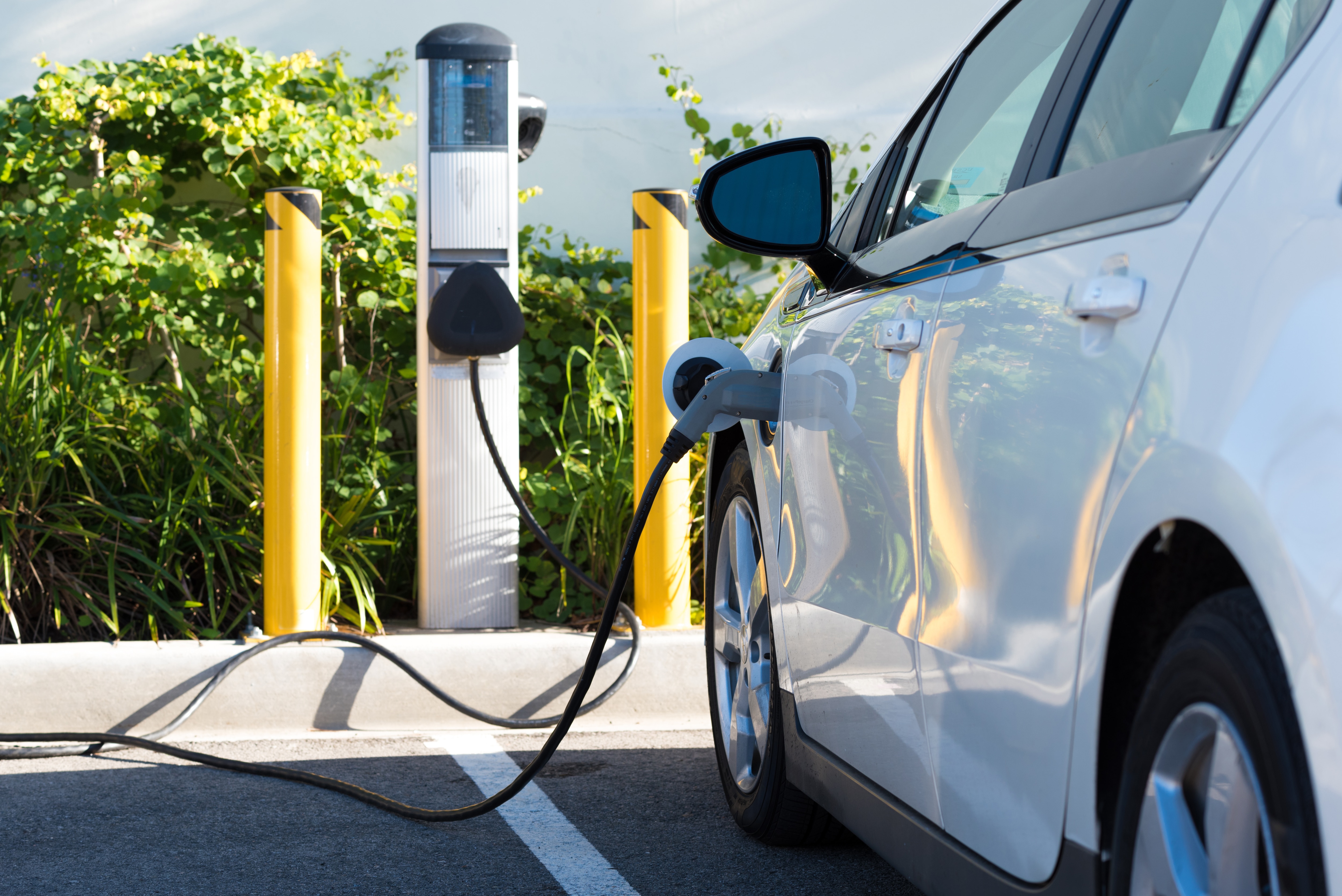Infra
Healey-Driscoll Administration Announces $50 Million Investment in Electric Vehicle Charging Infrastructure

BOSTON — The Healey-Driscoll Administration today announced an investment of $50 million in initiatives to build out electric vehicle (EV) charging infrastructure across Massachusetts. The American Rescue Plan Act (ARPA) funds will increase access to charging infrastructure for more residents, electrify the state fleet, improve operation of public charging stations, manage the impact of charging infrastructure on the electric grid, and provide charging solutions for difficult to electrify vehicle types.
“State and rideshare vehicles contribute a disproportionate amount of transportation emissions, so by investing in the electrification of these vehicles, we can have a much more cost-effective impact on emissions,” said Governor Maura Healey. “Our administration is committed to leading by example in addressing climate change, and we are pleased that these funds will also allow Massachusetts to more quickly electrify its fleet.”
“Many Massachusetts drivers want to make the switch to electric vehicles, but worry about access to charging,” said Lieutenant Governor Kim Driscoll. “This investment will break down barriers to widespread electric vehicle adoption and help Massachusetts meet its ambitious greenhouse gas emissions targets.”
The $50 million in ARPA funds will support innovative EV technology programs at the Massachusetts Clean Energy Center (MassCEC), charging infrastructure investments for the state fleet through Division of Capital Asset Management and Maintenance (DCAMM) and the Department of Energy Resources (DOER), testing equipment and staff at the Division of Standards (DOS) to conduct inspections of public charging stations, and future analysis of EV charging needs by the Electric Vehicle Infrastructure Coordinating Council (EVICC).
“Vehicle emissions not only contribute significantly to climate change, but also impact public health, especially in environmental justice communities,” said Secretary for Energy and Environmental Affairs Rebecca Tepper. “With this funding, the Healey-Driscoll Administration is creating more equitable access to clean transportation and ensuring drivers in all communities across Massachusetts have the option to choose an electric vehicle.”
“This funding will help make a bigger impact in the lives of our residents across the state as it relates to the future of transportation,” said Transportation Secretary and CEO Monica Tibbits-Nutt. “Taking the steps to increase measures like fast-charging stations and decarbonization will position us to offer better choices to residents that will be good for the environment and for us as we all work to respond to climate change.”
“Decarbonization and addressing climate change are core priorities of DCAMM’s operations,” said DCAMM Commissioner Adam Baacke. “We are excited to be a part of this important investment in EV charging infrastructure.”
“This significant investment from the Healey-Driscoll Administration will help make the transition to electric vehicles a more accessible and affordable opportunity for the Commonwealth’s residents and business owners,” said MassCEC CEO Dr. Emily Reichert. “These ARPA funds will directly impact our work to increase curbside charging stations, expand mobile charging for medium- and heavy-duty vehicles, speed up the electrification of taxi and rideshare fleets, and advance emerging technology that allows EV owners to use their car to power other sources.”
The following initiatives will receive funding:
Electric Vehicle Curbside Parking for Residents in Multi-Unit Dwellings – $12.5 million
MassCEC will work to help municipalities expand access to EV charging for residents with limited access to home charging, particularly in environmental justice and urban communities. Pole-mounted and streetlight chargers represent a promising strategy to use existing assets to expand access to curbside charging, but this potential is limited by barriers such as regulatory hurdles, complex ownership structures and unclear business and financial models.
The project aims to increase the number of overnight curbside charging stations, including accessible pole-mounted and streetlamp EV charging solutions. A technical consultant will deploy on-street charging near multi-unit dwelling neighborhoods and provide guidance to municipalities for future implementation.
Medium- and Heavy-Duty Electrification Mobile Charging Solutions – $9.5 million
Medium and Heavy-Duty (MDHD) vehicles make up 3% of Massachusetts vehicles, yet produce 20% of on-road vehicle emissions, making their electrification critical to reaching the state’s climate goals and to improve air quality in environmental justice communities, especially those near warehouses and ports. One major challenge to achieving electrification in this sector is project delays due to limits in grid infrastructure. Mobile charging represents a promising technology that could help fleet operators avoid delays and resist the urge to overbuild through temporary mobile charging solutions. MassCEC will complete a market characterization study paired with deployment projects to demonstrate mobile charging financial models and use cases.
Ride-For-Hire Vehicle Electrification Charging Solutions – $8 million
Uber, Lyft and taxi drivers drive a lot of miles, spend a lot of money on gasoline, and need a lot of charging. MassCEC will deploy EV charging to support the electrification of taxi and transportation network company (TNC) fleets. Electrification of this sector can help support the deployment of electric vehicles in urban areas and environmental justice communities. For example, studies in California show that while TNC drivers make up less than 3% of electric vehicle (EV) drivers, they account for over 40% of all public fast charger use. This project will fund level 2 and fast charging infrastructure projects with a focus on deploying charging resources in environmental justice communities, where a high percentage of TNC drivers reside.
Vehicle-To-Everything (V2X) Analysis and Demonstration Projects – $8 million
The widespread deployment of bidirectional technology would allow EV owners to use their car battery as a resource to reduce home energy costs or sell electricity onto the grid. V2X systems both charge and discharge an EV’s battery, enabling EVs to act as a grid resource by sending energy stored in the onboard battery to the local utility grid or to a grid-connected asset such as a building. This would have the potential transform our relationship with the grid, providing EV drivers with a mobile source of storage and opening up potential revenue streams to support EV adoption for low-income drivers. MassCEC will complete a market characterization analysis and demonstration projects that support vehicle-to-grid and/or vehicle-to-building projects designed to reduce peak demand and provide grid services.
EV Charging at Priority State Facilities – $9.5 million
DCAMM will seek to install fleet EV charging infrastructure in 60 or more high priority sites at state facilities. Each site would receive an average of 4 EV ports and 4 make-ready spots, making it easy to double the number of charging stations in the future.
EV Charging for Other State Vehicles – $1.5 million
DOER will provide funding to other agencies to install fleet EV charging infrastructure at approximately 60 sites, focusing on those not on the high priority list, non-executive branch fleets, and leased facilities.
EV Charging Testing Equipment – $604,000
DOS will purchase EV charging infrastructure testing equipment and hire staff to conduct inspections of public charging stations to ensure that they remain in working order and adhere to a common set of standards.
EV Charging Needs Analysis – $396,000
This funding will support the analytical needs of the EVICC through the end of 2026 to help it continue to assess the current state of EV charging infrastructure and future needs of Massachusetts as it promotes the electrification of the transportation sector.
Background on Electric Vehicle Infrastructure Coordinating Council
The EVICC was authorized by “An Act Driving Clean Energy and Offshore Wind” in 2022. The Climate Law requires that the EVICC assess and report on strategies and plans necessary to deploy electric vehicle charging infrastructure to establish an equitable, interconnected, accessible and reliable electric vehicle charging network. Since convening in May, the EVICC has held 10 public meetings on state EV infrastructure strategy.
In August 2023, the EVICC submitted an Initial Assessment to the Legislature which found that approximately 10,000 publicly accessible fast charging ports will be necessary to support the light-duty vehicle fleet by 2030, in addition to 35,000 publicly accessible Level 2 stations and more than 700,000 residential and workplace charging stations.
Earlier this year, the Administration expanded the Massachusetts Offers Rebates for Electric Vehicles Program (MOR-EV Program), which provides rebates for the purchase or lease of light-, medium-, and heavy-duty battery electric and fuel cell electric vehicles (EVs). In addition to the existing $3,500 rebates for EVs, the new MOR-EV program includes the rebates at the point-of-sale with participating dealers, a $3,500 rebate for used EVs for income-qualifying residents, a $1,500 rebate adder for income-qualifying residents called MOR-EV+ that is in addition to the standard rebate for new or used electric vehicles; and increased rebates for certain light-duty pickup trucks.
“These initiatives tackle huge issues, like the convenience of charging for condo and apartment dwellers, the greening of Uber and Lyft, the task of keeping chargers in good working order, and the electrification of heavy-duty trucks. Ambitious stuff,” said State Senator Mike Barrett (D-Lexington), Senate Chair of the Joint Committee on Telecommunications, Utilities, and Energy.
“Investing in EV infrastructure could not be more critical at this juncture to address the range and charging anxiety that makes drivers hesitate when deciding whether to purchase an electric vehicle,” said State Representative Jeffrey N. Roy (D-Franklin), House Chair of the Joint Committee on Telecommunications, Utilities, and Energy. “I thank the Administration for building on the Legislature’s work in creating the charging infrastructure fund by developing targeted investments in curbside charging, fleet charging, medium- and heavy-duty mobile charging, and other innovation solutions to help Massachusetts drivers get into EVs.”
###






:max_bytes(150000):strip_icc()/roundup-writereditor-loved-deals-tout-f5de51f85de145b2b1eb99cdb7b6cb84.jpg)



